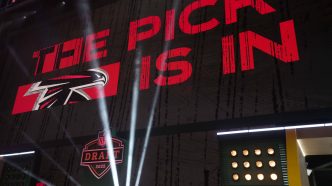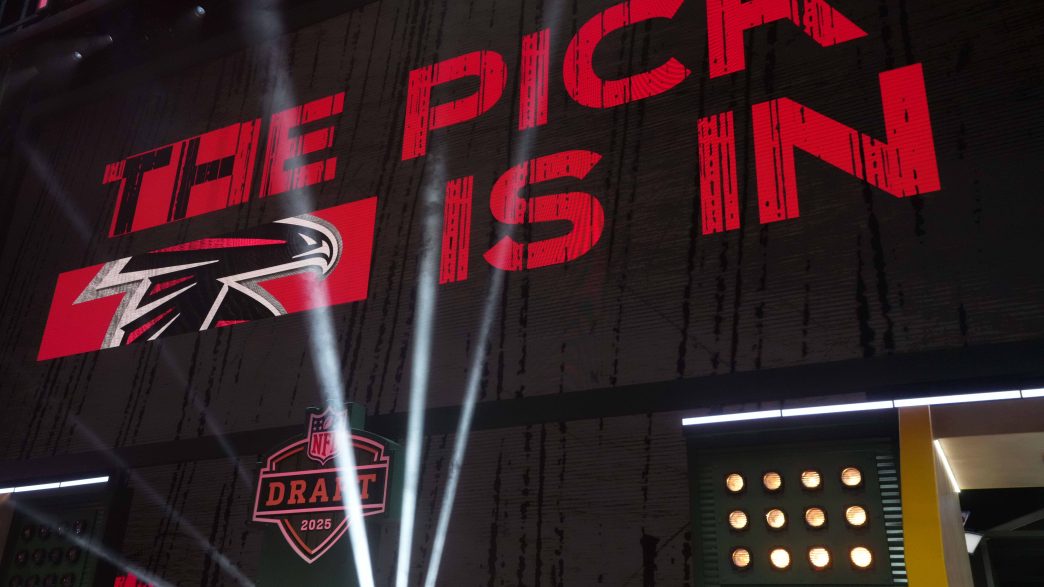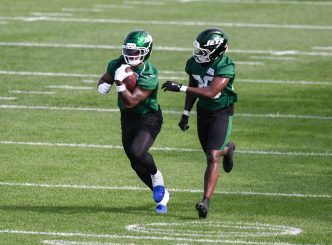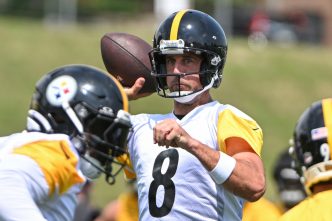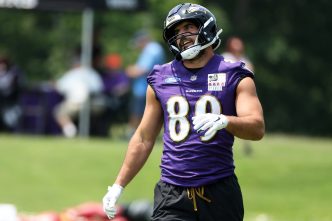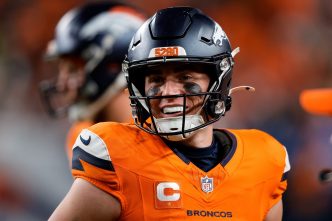The NFL has imposed significant fines on the Atlanta Falcons and their defensive coordinator Jeff Ulbrich, totaling $350,000, for violating league rules by failing to prevent the disclosure of confidential information ahead of the 2025 NFL Draft. The penalties, announced on April 29, 2025, via a tweet from Ari Meirov of MySportsUpdate, stem from a prank call involving Colorado quarterback Shedeur Sanders, who was ultimately selected by the Cleveland Browns in the fifth round at pick No. 144. The Falcons were fined $250,000, while Ulbrich was personally fined $100,000, marking a rare instance of the league holding a coach directly accountable for such a breach.
The incident traces back to early April 2025, when Sanders, a highly touted quarterback prospect, was at the center of draft speculation. On April 24, a video surfaced on social media showing Sanders on a phone call with a person he believed to be a member of the Falcons’ staff, discussing the team’s draft plans. The call, however, was a prank orchestrated by a YouTube channel known for targeting high-profile athletes, as reported by The Athletic’s Jeff Howe on April 25. In the video, the caller, posing as a Falcons official, asked Sanders about his fit with the team, which held the No. 8 overall pick. Sanders, unaware of the deception, responded enthusiastically, saying, “I’d love to play in Atlanta—I think I’d fit great with y’all’s offense,” per the video transcript published by Bleacher Report. The caller then revealed the prank, leaving Sanders visibly frustrated.
The video quickly gained traction, amassing over 2 million views within 48 hours, per YouTube Analytics. However, the NFL’s concern wasn’t the prank itself but the Falcons’ failure to safeguard confidential draft information. Sources told ESPN’s Adam Schefter on April 6 that the league’s investigation revealed Ulbrich had shared sensitive details about the team’s draft strategy—specifically their interest in trading up for a quarterback—with a staff member who was not authorized to have that information. That staff member, identified by NFL Network’s Ian Rapoport on April 29 as a low-level scouting assistant, inadvertently leaked the information to the prank caller, who had previously contacted the team under false pretenses. The NFL determined that Ulbrich’s lack of oversight and the Falcons’ inadequate internal protocols violated league rules on confidentiality, which are designed to protect the integrity of the draft process, per the NFL’s 2025 Operations Manual.
The Falcons, who ultimately selected Washington quarterback Michael Penix Jr. at No. 8 after failing to trade up for their top target, LSU’s Jayden Daniels (who went No. 2 to the Washington Commanders), were already under scrutiny for their draft approach. Sanders, projected by some as a first-round talent, fell to the fifth round due to concerns about his attitude and off-field demeanor, as noted in a The Athletic draft analysis by Dane Brugler. The Browns traded up to select Sanders, sending picks No. 166 and No. 192 to the Seahawks, per NFL.com’s transaction log. The prank call, while not directly impacting Sanders’ draft stock, exposed vulnerabilities in the Falcons’ organizational structure, prompting the NFL to act swiftly.
NFL Commissioner Roger Goodell addressed the fines in a statement on April 29, saying, “The integrity of the draft process is paramount. Teams and their staff are expected to uphold the highest standards in protecting sensitive information. The Falcons’ failure to do so warranted this disciplinary action,” as reported by ESPN’s Jeremy Fowler. The league’s decision to fine Ulbrich personally is notable—typically, such penalties are levied against teams or front-office executives, not coaches. A source told NFL Network’s Tom Pelissero that Ulbrich’s fine was due to his direct role in the breach, as he failed to follow protocol by sharing draft plans outside the designated decision-making circle, which included GM Terry Fontenot and head coach Raheem Morris.
The Falcons issued a statement on April 29, acknowledging the penalties and outlining corrective measures. “We accept the NFL’s decision and have taken immediate steps to strengthen our internal processes, including enhanced training on confidentiality protocols for all staff,” the statement read, per The Atlanta Journal-Constitution’s D. Orlando Ledbetter. Ulbrich, speaking to reporters on April 30, took responsibility, saying, “I made a mistake in how I handled that information, and I deeply regret the position it put our team in. We’ve learned from this and will ensure it doesn’t happen again,” per ESPN’s Marc Raimondi.
The incident has broader implications for the NFL, particularly as teams navigate the increasing prevalence of social media pranks and leaks. The league has fined teams for similar violations in the past—most notably the Kansas City Chiefs in 2015, who were fined $250,000 and lost a third-round pick for tampering with Jeremy Maclin, per NFL.com’s historical discipline records—but the Sanders prank call highlights a new challenge: protecting draft information in an era of digital deception. The NFL has since reminded teams of their responsibility to verify the identity of callers claiming to represent other organizations, per a memo sent to all 32 teams on April 30, as reported by Pro Football Talk’s Mike Florio.
For the Falcons, who finished 8-9 in 2024 and missed the playoffs for the seventh straight year, the fine adds to an offseason of scrutiny. Their draft strategy, already criticized after passing on Sanders and other top prospects like Texas quarterback Quinn Ewers (selected No. 12 by the Giants), now faces questions about organizational discipline. Meanwhile, Sanders, now with the Browns, has moved past the incident, focusing on competing in a crowded quarterback room that includes Joe Flacco, Kenny Pickett, and Dillon Gabriel, per Cleveland.com’s Mary Kay Cabot. The prank call, while a footnote in his draft journey, has left a lasting mark on the Falcons, serving as a costly reminder of the importance of safeguarding confidential information in the high-stakes world of the NFL Draft.

